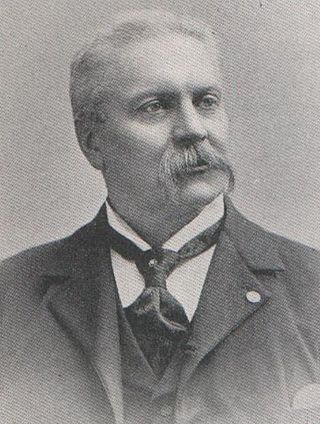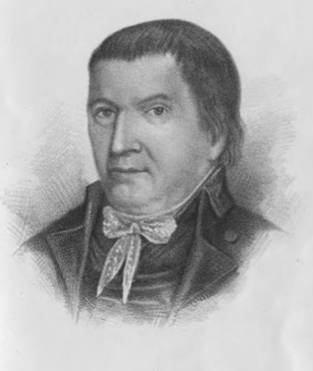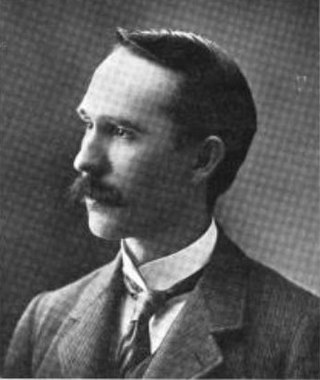Related Research Articles
James Elliot was an American soldier,lawyer,author and politician. A holder of local and state offices throughout his life,he was most notable for his service as a United States representative from Vermont.

William Upham was an American attorney and politician from Montpelier,Vermont. He was most notable for his service as a United States senator from Vermont.

Jonathan Hunt was an American pioneer,landowner and politician from Vernon,Vermont. He served as second lieutenant governor of Vermont and was a member of the prominent Hunt family of Vermont.

Frederick Holbrook was an American farmer,businessman,and Governor of the State of Vermont. Active in politics and government,first as a Whig,and later as a Republican,he was most notable for his service as the 27th governor of Vermont from 1861 to 1863.

Kittredge Haskins was a Vermont lawyer and Republican politician. A Union Army veteran of the American Civil War,he served in the United States House of Representatives from 1901 to 1909.

James Loren Martin was an American lawyer,politician,and United States federal judge. The notable positions in which he served during his career included State's Attorney of Windham County,Vermont,Speaker of the Vermont House of Representatives,United States Attorney for the District of Vermont,and United States District Judge of the United States District Court for the District of Vermont.

Levi Underwood was a lawyer and politician from Vermont. Originally a Democrat,Underwood's antislavery views caused him to join the new Republican Party when it was founded. Underwood was most notable for his service as the 23rd lieutenant governor of Vermont from 1860 to 1862.

Luke Knowlton was a political leader of colonial Vermont,the Vermont Republic,and the state of Vermont. He served as a justice of the Vermont Supreme Court,a member of the Governor's Council,and a member of the Vermont House of Representatives.

The Deacon John Holbrook House is a historic building at 80 Linden Street in Brattleboro,Vermont. Built in 1825 for prominent local businessman John Holbrook,it is a high-quality example of Federal period architecture. It was listed on the National Register of Historic Places in 1982. It now houses professional offices.
Frank Elliott Barber Jr. was a Vermont attorney and politician who served as Vermont Attorney General from 1953 to 1955.

Rebecca A. Balint is an American politician who is a member of the United States House of Representatives from Vermont's at-large congressional district as a member of the Democratic Party. She served as a member of the Vermont Senate from Windham County from 2015 to 2023,as majority leader from 2017 to 2021,and as president pro tempore from 2021 to 2023.
Charles W. Porter was an attorney and public official who served as Secretary of State of Vermont.

John Holbrook was a publisher and entrepreneur. An early settler of Brattleboro,Vermont,Holbrook was notable for initiating a publishing industry there.
William Weston was an attorney and politician in Burlington,Vermont,and Brooklyn,New York. He served in several local and state offices,and is most notable for his service as a member of the Vermont Senate in the 1850s.
Heman Lowry was a county,state and federal government official in Vermont. He was a delegate to two state constitutional conventions. Lowry was also the longtime sheriff of Chittenden County. In addition,he served twice as U.S. Marshal for Vermont.

Arthur P. Carpenter was an attorney and government official from Vermont. A Democrat,among the offices in which he served was United States Marshal for the District of Vermont (1914-1922) and judge of the Brattleboro,Vermont municipal court (1923-1929).

The 1854 Vermont gubernatorial election for governor of Vermont took place on September 5. The Whig nominee was Stephen Royce,former Chief Justice of the Vermont Supreme Court. The Democratic nominee was Merritt Clark,and Lawrence Brainerd ran as the nominee of the Free Soil Party even as he was one of the organizers of the new anti-slavery Republican Party and appeared as a Whig candidate for the Vermont Senate on the ballot in Franklin County. Whig William C. Kittredge was nominated for governor against his wishes by advocates of the Temperance movement and Democrat Horatio Needham also attracted the support of some Free Soil advocates.

The 1861 Vermont gubernatorial election for governor of Vermont was held on Tuesday,September 3. In keeping with the "Mountain Rule",incumbent Republican Erastus Fairbanks,who had also served as governor from 1852 to 1853,was not a candidate for a third one-year term. The Republican nominee was Frederick Holbrook,a former member of the Vermont Senate. With the Democratic Party split nationally over the issue of slavery during the American Civil War,Andrew Tracy,a former member of the United States House of Representatives,appeared on the ballot as a pro-Union Democrat. Benjamin H. Smalley was on the ballot as a "Peace Democrat," Democrats who favored a compromise with the states that had formed the Confederacy.
Christian Hansen Jr. was an American businessman and government official from Vermont. A Republican,he was best known for his service as United States Marshal for the District of Vermont from 1969 to 1977 and again from 1982 to 1994.
References
- 1 2 3 4 5 6 7 8 9 10 11 12 13 14 15 Brattleboro, Windham County, Vermont.
- ↑ "Massachusetts Town and Vital Records".
- ↑ "Democratic District Convention".
- ↑ "Rail-Road Bill".
- ↑ Acts and Resolves (1843).
- ↑ "Vermont State Agricultural Society".
- 1 2 The History of the Descendants of John Dwight.
- ↑ "Vermont Democratic Nominations".
- ↑ "Windham County Convention".
- 1 2 Gravestone Listings of Prospect Hill Cemetery, Brattleboro, VT.
- ↑ The Wheelwright Genealogy.
- 1 2 "Deacon John Holbrook House".
- 1 2 "Chapin Street".